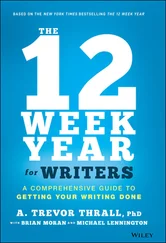Before I started writing this book, as per normal, I asked my spirit workers to direct me towards something or someone that would inspire me. Normally, they will guide me to an uplifting song, or perhaps I will be drawn to an inspirational film that will help to ignite my writing spark. Once again, I would not be disappointed.
Two weeks ago, my wife and son decided to go to Glasgow to do some shopping. Nothing unusual about that, you might suggest, but my wife and son very rarely go shopping together as my son absolutely hates shopping. It was Saturday and I had a full day to myself – that hadn’t happened for as long as I can remember as I’m always busy on a Saturday! And as I contemplated beginning my new book, a thought quickly came into my head – go to the cinema. I checked to see what film might be of interest to a middle-aged man sitting alone in an almost empty cinema, on a dreary Saturday afternoon, and one particular film almost reached out and kicked my ass so hard that I nearly found myself shopping in Glasgow instead. The film was The Railway Man – a factual account of one man’s fight to survive the brutality of war. Popcorn at the ready, I knew that this event had almost certainly been pre-planned by my spirit workers. I then prepared myself for an education that I would never, ever, forget.
The Railway Man is the true-life account of an English soldier’s harrowing experience in a Japanese prisoner of war camp. The autobiographical account of the life of this unfortunate soldier, Eric Lomax, was tinged in controversy when the book of the same name was first published many years ago. The main talking point wasn’t the fact that much of what happened in those camps had been shamefully swept under the carpet by the British government; it was the fact that Mr Lomax had forgiven one of his torturers for the appalling crimes committed against him. Many of his fellow comrades couldn’t understand this bizarre act of kindness directed towards a sadist who had committed crimes of an almost incomparable magnitude.
I’ve read many detailed accounts of the horrors of this period and cannot begin to describe the extremely unpleasant effect it would always leave me with. You only need to Google the words Oryoku Maru to feel sick to the stomach from the unimaginable atrocities that would make even hardened slave traders grimace with horror. Mr Lomax was not on the Oryoku Maru (more aptly named – cannibal ship), but his experiences, nevertheless, were of an absolute abomination to decent human rights. However, despite suffering from frequent nightmares once returning to England, he chose the unthinkable – to forgive his chief tormentor for making his life a seemingly eternal nightmare. To most former POWs this was seen as a step too far.
The film differs slightly from the book as it infers that Mr Lomax went back to the scene of the crime to seek vengeance on his Japanese torturer, before eventually forgiving him when he found out that he too was suffering in his own personal way from what had taken place many years before. In real life, Lomax had actually prearranged this meeting and had planned to forgive him well in advance.
The end of the film is breathtaking. I watched this film with just twenty or thirty others in attendance. There was complete silence throughout the entire experience. As we all left the theatre, nobody spoke or even looked at one another. We all just wanted to get outside as quickly as possible and release our bottled-up emotions.
Mr Lomax and his torturer became firm friends after their post-war meeting. In retrospect, many of his comrades either lived the remainder of their lives in a permanent state of mental torture, or unfortunately committed suicide to end their pain. I will let you decide which path yielded the greater dividend. My thoughts will stay firmly locked with the emotions that I released immediately on leaving the movie theatre. If you haven’t watched this film yet, then I would recommend that you do so when the time is right. You will know when that time comes – trust me.
In my work as a hypnotherapist, I often meet people who suffer from acute depression. Depression is a distorted state of well-being that has unbalanced an individual’s emotional self-structure. In other words, someone suffering from depression cannot control their emotions in a manner that produces a healthy, fulfilling lifestyle. But what if that’s just ‘Doctor Talk’? After all, aren’t we here on Earth to experience emotions and what their effect has on our eternal consciousness? Wouldn’t depression be an integral part of this learning process? Perhaps, but if the effects of depression are not accepted and then suitably dealt with, then the lasting effects of such an imbalance can be extremely debilitating for any soul.
In essence, this imbalance of energy must be addressed. And if not here in the physical plane, then most certainly when returning to the world of spirit. So how do we rebalance the energy of someone suffering from a depressive state caused by extreme torture? The answer is by the means of altering the memory of traumatic events from a negative source to a more positive one. This can be achieved by hypnotherapy – and it regularly works!
Analytical hypnotherapy involves an individual choosing to regress to a point where a traumatic event occurred in their life and reliving the moment that caused this horrific imbalance of energy. A hypnotherapist will then guide the subconscious mind of the client to re-enact the traumatic event before instructing them to forgive the person involved. Once this has been achieved and the individual is returned to full consciousness, any future recalled memory of this incident will now instil a more positive emotion. This is because the individual, in their mind, has since forgiven their tormentor and now no longer wishes any bad feelings towards them. The imbalance of energy will have been suitably addressed as there will no longer be a heavy leaning towards negative emotions.
If we don’t forgive someone for committing crimes against us in this method then we will still have the opportunity when both parties eventually meet up in the spirit world. Only this time, it becomes imperative that we actively seek a compromise as any disagreement will then need to be addressed in a future incarnation.
Every case should be judged on its own merits. Forgiving someone for forgetting your birthday is much easier than forgiving someone for murdering your grandmother. But the spiritual guidelines are the same, if not the morals.
Whenever I am asked about people who inspire me and make me want to be a better person, I always name the same three individuals –Mahatma Gandhi, Martin Luther King and Nelson Mandela. Of course, there are many others who have sacrificed their lives to aid other people not as fortunate as themselves and they are undoubtedly my heroes. But the aforementioned gentlemen, in my view, are the modern-day benchmark when it comes to inspiring ordinary people to make their world a better place to live in.
I am always in awe of those who dedicate their lifetime on this Earth to try and maintain peace within our lands. I also take my hat off to those people unfortunate enough to find their life here shortened by terminal illness, yet fight this tenure with an unassuming dignity. But it is those individuals that choose to fight oppression with simple reasoning that hearten me with the greatest hope for the future of this huge sanctimonious-filled ball of life that we call Earth. And I will now attempt to explain why.
Gandhi, King and Mandela were all victims of totalitarian regimes that denied them the right to live a life free from prejudice and restriction of choice. Any attempt to break free from persecution brought violence and abuse crashing down upon them and everyone else who stood beside them. Gandhi and King fought this terror with incisive tongues that ripped through their bigoted immoral societies. And, as countless souls yielded under the broad sword of injustice, Gandhi and King stood firm against their immensely powerful opponents. Both men were eventually assassinated but not before their legacy had been firmly put in place. That legacy decreed that no man should be treated as unequal, regardless of their skin colour or their credence. Incredibly, this was achieved by denouncing any form of violence whatsoever against the dictatorships that had principally governed their regimes through direct violence.
Читать дальше










